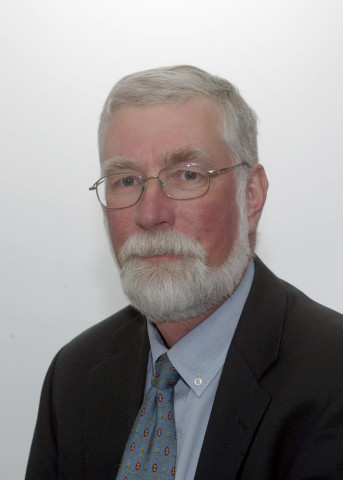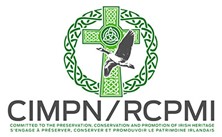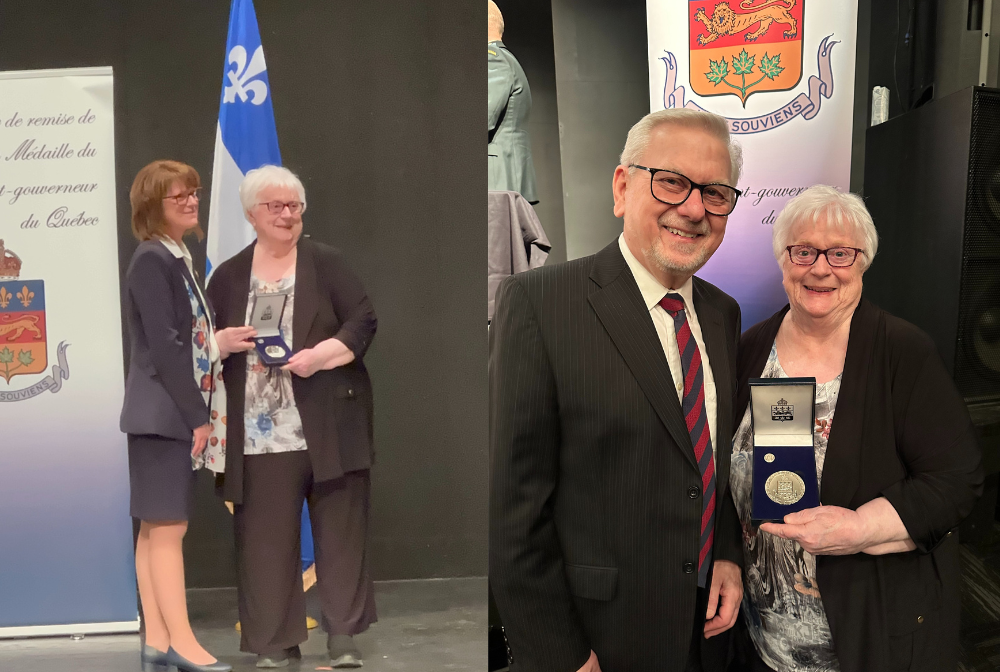
DASHBOARD TO MEASURE FRENCH MAY HAVE SERIOUS FLAW
Report from QCGN President Eva Ludvig
 The Quebec government's Plan pour la langue française has finally arrived, several months later than anticipated with comparatively little added to what it was already known to contain:
The Quebec government's Plan pour la langue française has finally arrived, several months later than anticipated with comparatively little added to what it was already known to contain:
- recommendations on finding more French-speaking immigrants and beefing up resources for francization programs;
- promising legislation within a year to make Québécois cultural products more visible on digital platforms like Spotify or Netflix;
- discriminatory increases in tuition for out-of-province undergraduates at two English universities, McGill and Concordia, along with penalties if the universities fail to ensure 80 per cent of those students attain an intermediate level of French proficiency by graduation.
The major new element, presented by French Language Minister Jean-François Roberge, is a report card, or dashboard, that will statistically measure the strength of French on an annual basis. The statistics will come from l'Institut de la statistique du Québec, but Roberge has not revealed exactly which yardsticks will be used.
This is important. As the QCGN asked in a news release following the Plan's presentation, is the government setting French up to fail by relying on statistics known to show declines – mother tongue, first official language spoken, language used at home – rather than those, for example, which the Office Québécois de la langue française reported on recently that showed the public use of French has remained stable since 2007, and that it is easy to get service in stores in French in 98 per cent of cases across Quebec?
The government's approach to French, we said in the release, "has been simple, consistent and divisive: find statistics to show French is imperiled, identify appropriate scapegoats (English-speaking university students, asylum-seekers, merchants trying to be courteous to customers) and then bravely bring in punitive legislation and rules against groups who often enjoy little political power." This was a theme former NDP leader Thomas Mulcair picked up in hiscolumn in The Montreal Gazette in which he said the QCGN did everyone a favour by raising the issue.
Obviously there is more to come on this, from the specifics of the report card to the details of how the government intends to get international digital platforms to pay special attention to Quebec's needs. So long as the government doesn't seek to restrict access to digital content in other languages, like English, we are supportive of the culturally-oriented measures. We are also supportive of more resources for teaching non-francophones French, provided members of the English-speaking community of Quebec have access to these courses on an equal basis.
Language and numbers
You can't say we haven't been timely, except, perhaps for the weather. On April 4, nearly 200 people (more than a quarter of them braving a snowy, slushy night in downtown Montreal) attended in-person and online a symposium on the status of French moderated by Gazette columnist Allison Hanes and featuring one of the editors and two contributors to an increasingly widely read book called Le Français en déclin ?: Repenser la francophonie Québécoise. The conference heard that while French will always be fragile because of its minority status in a sea of North American English, the statistics the government emphasizes – those I mentioned above – don't reflect the reality of Quebec's public sphere.
Our event was held the same day as news reports about OQLF study on the strength of French which contradicted much of what the government has been saying about the supposed decline of French since it was first elected in 2018. Jean-Pierre Corbeil, who spoke at the symposium, became sought after for media interviews thereafter and was the sole person interviewed on Radio-Canada's news network (RDI) for its live coverage of the unveiling of Roberge's Plan last Sunday, where he delivered the same message. La Presse produced an editorial out of the event, a rare instance of attention paid to our community.
This event was an unqualified success on many levels and we intend to organize more of its kind in the months ahead.
![]()
QCGN WORKS TO BUILD A STRONGER COMMUNITY NETWORK
By Riley Dalys-Fine
Director of Community Engagement and Strategic Alliances
One of the core strategic pillars of the QCGN is to "enhance the vitality and resiliency of the English-speaking communities in Quebec by developing and strengthening networks through dialogue, capacity building, partnering and joint action." One of the most important activities we undertake to advance this pillar is our backbone role to the 2022-2027 Community Development Plan, a shared framework for collective action by dozens of organizations and institutions.
Every year we work to mobilize our members and partners in English-speaking Quebec's community sector, who provide services and programs to English speakers in all 17 regions of Quebec. According to a 2023 poll commissioned by the QCGN, 1 in 5 English speakers have used the services of a non-profit in the last year; they are an essential part of the discussion around what makes our community vital, and it is vital that they be included in these discussions.
Below are a few highlights of activities carried out over the last month by the QCGN to build the capacity of its member and partner organizations and support their engagement.
Consultation on Part VII of the Official Languages Act
On April 18, the QCGN took part in a preliminary consultation with the Treasury Board of Canada and the Official Languages Branch of the Department of Canadian Heritage concerning regulations related to Part VII of the Official Languages Act. Part VII is of paramount importance because it includes the obligations of many federal institutions to enhance the vitality of Official Language Minority Communities (OLMCs) and shapes the way services are provided and community organizations are funded. The new regulations, which are still being developed, will set the guidelines by which government departments and institutions advance the objectives of legislative statues.
In our role as interlocutor with the community for the federal government, we were active in reaching out to our community partners on behalf of these federal institutions and informing them of the important issues at stake in this process so that they could participate more fully in the discussions. The discussion which took place on April 18 included senior leaders within more than a dozen community institutions who provide services in various sectors of activity. Together we provided critical insight with respect to how organizations can be more effectively included in future consultations and our need for linguistic clauses in intergovernmental agreements.
Workshop on influencing policy change
On April 30, the QCGN hosted a workshop with activist and author Amanda Sussman on strategies that non-profits can employ for successful advocacy. Drawing on lessons from her book, The Art of the Possible, Amanda shared strategies with our network for working with the public sector to affect change. Organizational and individual members took part in an enriching discussion addressing common barriers to civic engagement and tactics for securing and facilitating successful meetings with politicians and civil servants at all levels of government.
The workshop acknowledged the many challenges that organizations can sometimes face when it comes to advocating for change. "The reality is that a lot of non-profits are doing this work on the side of their desks," Sussman noted during the workshop. Nevertheless, there are practical lessons that non-profits can employ to communicate their needs to decision makers, build partnerships and coalitions to gain support for their cause and better understand, and influence, the inner workings of government.
Moving forward
The QCGN is proud to support the work of its member and partner organizations and our efforts to strengthen the capacity of the community sector will continue in the months ahead. In May, we will host the next meeting of the Community Vitality Roundtables which regroup dozens of stakeholders to carry out the Community Development Plan. Shortly thereafter, we will be sharing the annual community development priorities, which are used by the Department of Canadian Heritage to guide funding decisions for the next fiscal year. We encourage all organizations to get involved in this process, and together we can achieve what we cannot accomplish on our own.
![]()
QCGN SEEKS INDIVIDUAL MEMBERS
.gif) In early 2024, the QCGN reached a one-year milestone after introducing a category for individual members. As this is the first time in QCGN history that such a membership category has been offered, we spent the first year dipping our toes in the water and learning from our community. Our gratitude goes out to all individuals, organizations and board members who took part in discussions and consultations concerning the member experience, contributing greatly to this key renewal priority.
In early 2024, the QCGN reached a one-year milestone after introducing a category for individual members. As this is the first time in QCGN history that such a membership category has been offered, we spent the first year dipping our toes in the water and learning from our community. Our gratitude goes out to all individuals, organizations and board members who took part in discussions and consultations concerning the member experience, contributing greatly to this key renewal priority.
With exciting things still to come on the horizon, the QCGN is thrilled to be welcoming new individual members. Our member registration process is now quick and easy, and we encourage all those who support a harmonious and equitable Quebec, all those who support the vitality of minority English-speaking communities across the province, to sign up. While new member materials and opportunities are being developed alongside other innovative projects in the works at the QCGN, members will continue to benefit from fast and reliable information, networking opportunities and the right to cast their vote for candidates of the QCGN's Board of Directors and approve other governing motions as regulated by the organization's bylaws.
"We look forward to growing our network of individual members and continuing to learn from the expertise, experiences, and identities of the diverse members of our community," commented QCGN President Eva Ludvig. "Working together, our voice will resonate clearly and confidently as we foster an inclusive definition of what it means to be an English-speaking Quebecer in this province."
![]()
HAPPY BIRTHDAY, QUESCREN
The Quebec English-speaking Communities Research Network better know as QUESCREN, is marking 15 years of promoting the community's vitality.
Based at Concordia University, this network of researchers, community members and institutions provides opportunities to encourage the understanding of English-speaking Quebec through research, knowledge mobilization, networking and outreach.
A report on Concordia's website notes that, "the network provides a variety of resources, including an online bibliography on English-speaking Quebec with 14,400 publications. It also hosts the Community Knowledge Open Library, which includes documents produced by English-speaking community organizations, and has a newsletter, a YouTube channel and more."
Funded by both federal and provincial levels of government, the organization has held numerous events in which the QCGN has participated.
"Basically, we let the world know about what people know about English-speaking Quebec, whether it's a very formal PhD dissertation, ephemeral community knowledge or recordings of event presentations," explained Lorraine O'Donnell, the group's senior researcher.
QUESCREN recently launched a searchable database, the Data Portal on English-speaking Quebec that includes Statistics Canada data relating to English-speaking Quebec as well as the Inter-Level Educational Table (ILET) Hub, which highlights research on education and features podcasts and video interviews with researchers.
CONGRATULATIONS, BRENDAN O'DONNELL AND THE CANADIAN IRISH MIGRATION PRESERVATION NETWORK
Submitted by the Quebec Anglophone Heritage Network
 The Quebec Anglophone Heritage Network has named Brendan O'Donnell as this year's recipient of the Marion Phelps Award in recognition of his outstanding contributions to the preservation and promotion of Anglophone heritage in Quebec. The honour recognizes O'Donnell's countless hours of volunteering over the past 45 years in creating a comprehensive Bibliography on English speaking Quebec (BESQ), as well as his many contributions to the Missisquoi Historical Society and Museum.
The Quebec Anglophone Heritage Network has named Brendan O'Donnell as this year's recipient of the Marion Phelps Award in recognition of his outstanding contributions to the preservation and promotion of Anglophone heritage in Quebec. The honour recognizes O'Donnell's countless hours of volunteering over the past 45 years in creating a comprehensive Bibliography on English speaking Quebec (BESQ), as well as his many contributions to the Missisquoi Historical Society and Museum.
"Brendan painstakingly gathered over 14,000 bibliographic references, one by one. He began this work as a summer student in 1978, then continued it as a volunteer," said his nominator, Lorraine O'Donnell (no relation). "Brendan told us that his career job (with the federal government) took him across Canada. When he had downtime, he would go to local libraries and identify new publications for the bibliography. All told, he has spent thousands of volunteer hours combing countless libraries to identify and list the publications."
Added QCGN Director General Sylvia Martin-Laforge, "Any community group, researcher, government official, or journalist wishing to find out about English-speaking Quebec, including its history and heritage, can consult the Bibliography to get the full picture of what others have already found out on their research topic."
Promoting Anglophone Heritage
The Quebec Anglophone Heritage Network (QAHN) has also announced that the Canadian Irish Migration Preservation Network (CIMPN) is this year's recipient of the Richard Evans Award in recognition of outstanding long-term contributions by an organization or group of volunteers to the preservation and promotion of Anglophone heritage in Quebec.
 The CIMPN is a not-for-profit Irish historical preservation organization whose members, led by president Kelley O'Rourke, are a repository of information about the history and culture of Irish migration to North America. Genealogists, family historians, and academics are the beneficiaries of the group's work.
The CIMPN is a not-for-profit Irish historical preservation organization whose members, led by president Kelley O'Rourke, are a repository of information about the history and culture of Irish migration to North America. Genealogists, family historians, and academics are the beneficiaries of the group's work.
Most of the Irish migrants who first arrived in Saint-Colomban in the 1820s, before the Great Famine, were buried in a historic part of the local church cemetery located about 100 kilometres northwest of Montreal. In 2005, a small group from Montreal, descendants of those early Irish immigrants, visited the historic Catholic church and cemetery in Saint-Colomban. To their dismay, they found headstones broken and in disrepair. They quickly formed a group, seizing the opportunity to preserve this history for future generations. The St. Columban-Irish Descendants began fundraising to restore the cemetery one headstone at a time. The work continues almost 20 years on.
QAHN will host an awards ceremony to recognize this year's recipients of both the Marion Phelps Award and the Richard Evans Award. It will take place at the Maison Louis-Joseph Forget in Montreal on June 29, 2024, from 5-7 p.m. An RSVP sent to home@qahn.org is essential.
A WELL-DESERVED HONOUR FOR RUTH PELLETIER

Seniors Action Quebec founder and former president Ruth Keatly Pelletier was honoured recently with a Lieutentant-Governor's Silver Medal recognizing her tireless work for more than 50 years as a community volunteer and champion of the less fortunate.
The Lieutenant Governor's Seniors Medal recognizes the voluntary involvement, determination and dedication of Quebecers who make or have made a difference in their community or Quebec nation. The awards are given to individuals who have contributed to the well-being of their community or to the achievement of an organization's mission through sustained volunteer involvement in social or community activities that began or continued after the age of 64. The well-deserved award was presented to Pelletier by Lt.-Gov. Manon Jeannotte in Laval on Saturday, April 20 in front of her family. Seniors Action Quebec President Walter Duszara was also on hand. (Pictured above.)
In 2012 Ruth was a founding member of Seniors Action Quebec which works to maintain and enhance the vitality of English-speaking Quebec seniors. The group was incubated by the QCGN under Ruth's watchful eye. Ruth also had a hand in helping to establish the QCGN's Sheila and Victor Golbloom Distinguished Community Service Award and organize its first awards ceremony.
Ruth began her working career back in the early 60's working in Geriatrics at the Verdun Protestant Hospital, now known as the Douglas Hospital. She also worked at the Mackay School for Deaf & Crippled Children. In the late sixties, Ruth was a founding member of the Greater Montreal Anti-Poverty Coordinating Committee (GMAPCC).
For more than 50 years Ruth has been an activist and advocate for the less fortunate. This included being a welfare & consumer advocate, spokesperson who presented a brief before the Senate Committee on Poverty. Ruth also helped found two citizen's groups in Laval: the Laval Citizen's Advisory Council and Laval's Association to Mold a Better Society (LAMBS). Her consumer work lead her to discuss consumer rights on radio programs that lead to employment opportunities as a broadcaster with CJAD, CFCF and CBC's Home Run.
A career shift brought Ruth to work for Quebec's English-speaking minority. For more than 12 years, she worked at Alliance Quebec, with seven years in Community Development, then three years as Assistant to the Executive Director, followed by a stint as Executive Director. After Alliance Quebec, Ruth became the Executive Director of the Canadian Continence Foundation where she managed a Health Canada project that created the first clinical practice guidelines for treatment of urinary incontinence for Canada. She also spent five years in fundraising at the foundation office of the Queen Elizabeth Health Complex – a QCGN member group.
As a volunteer, Ruth served on the Executive of Chez Doris, the NDG Community Council, and Elder Abuse. Ruth continues to organize conferences and special events. In her free time, she enjoys time with her five children, eight grandchildren and her great-grandson, Charles.
Thank you for reading our regular newsletter. For up-to-date news about the Quebec Community Groups Network you can visit our website at www.qcgn.ca or follow us on Facebook, Twitter and/or Instagram.
 |